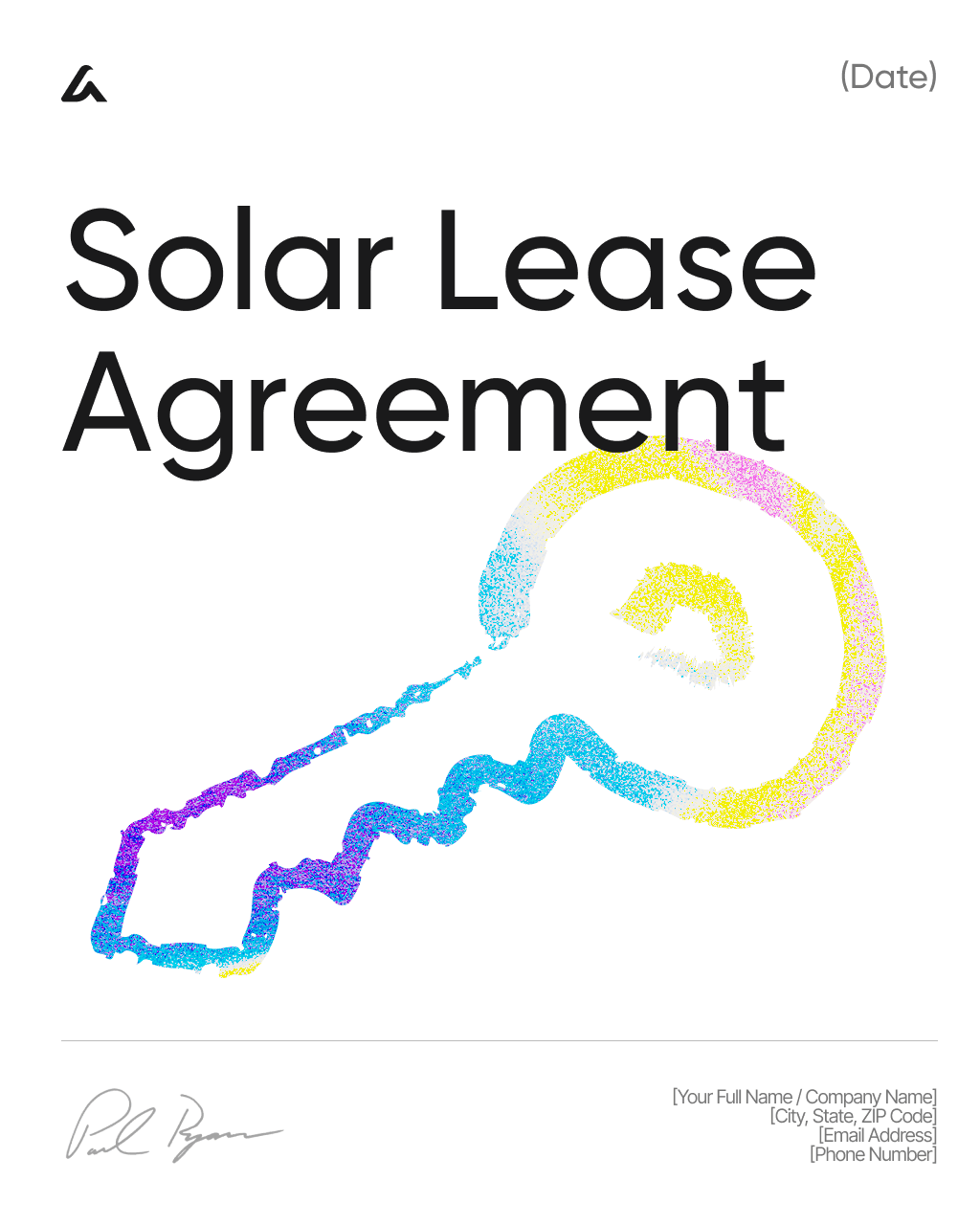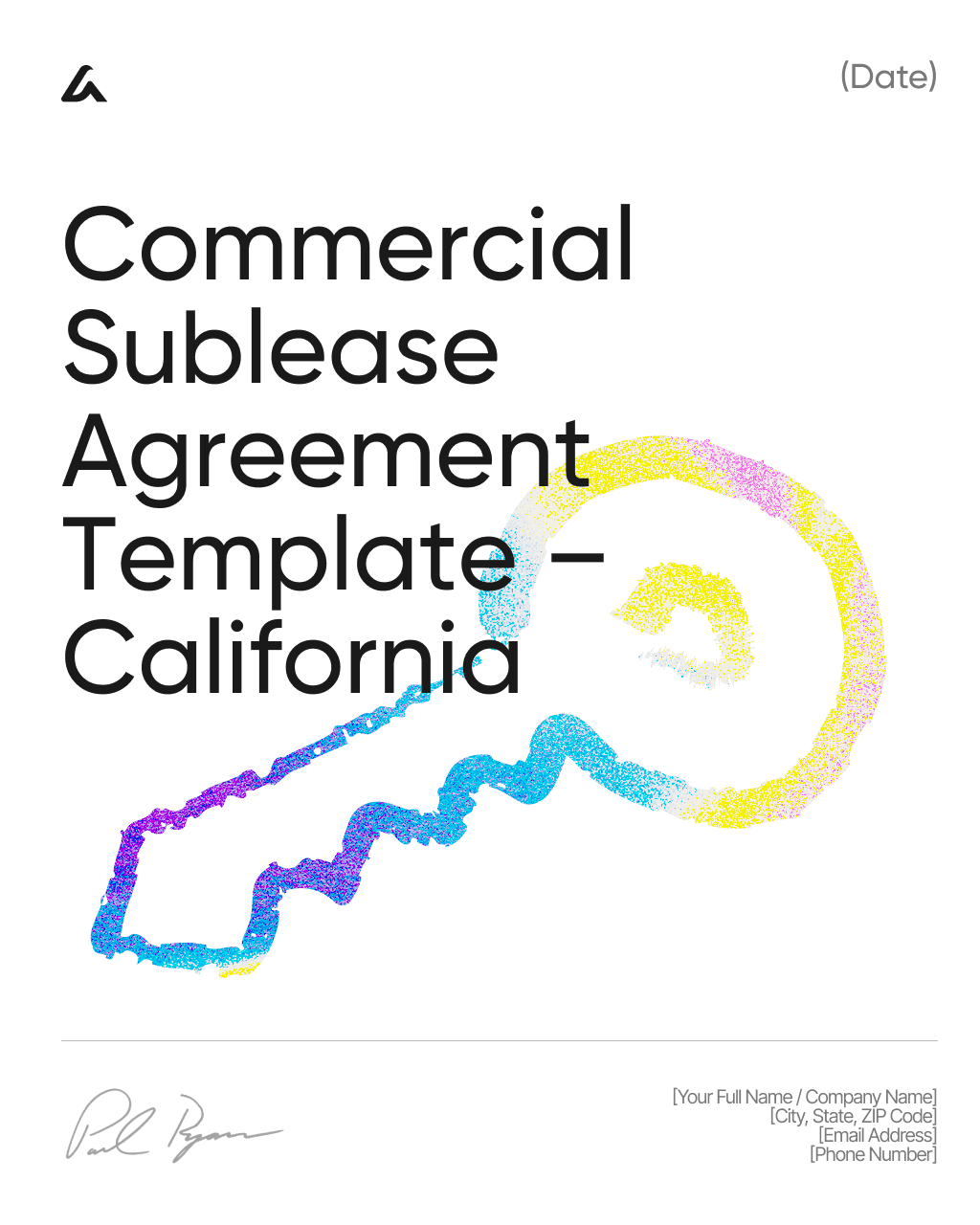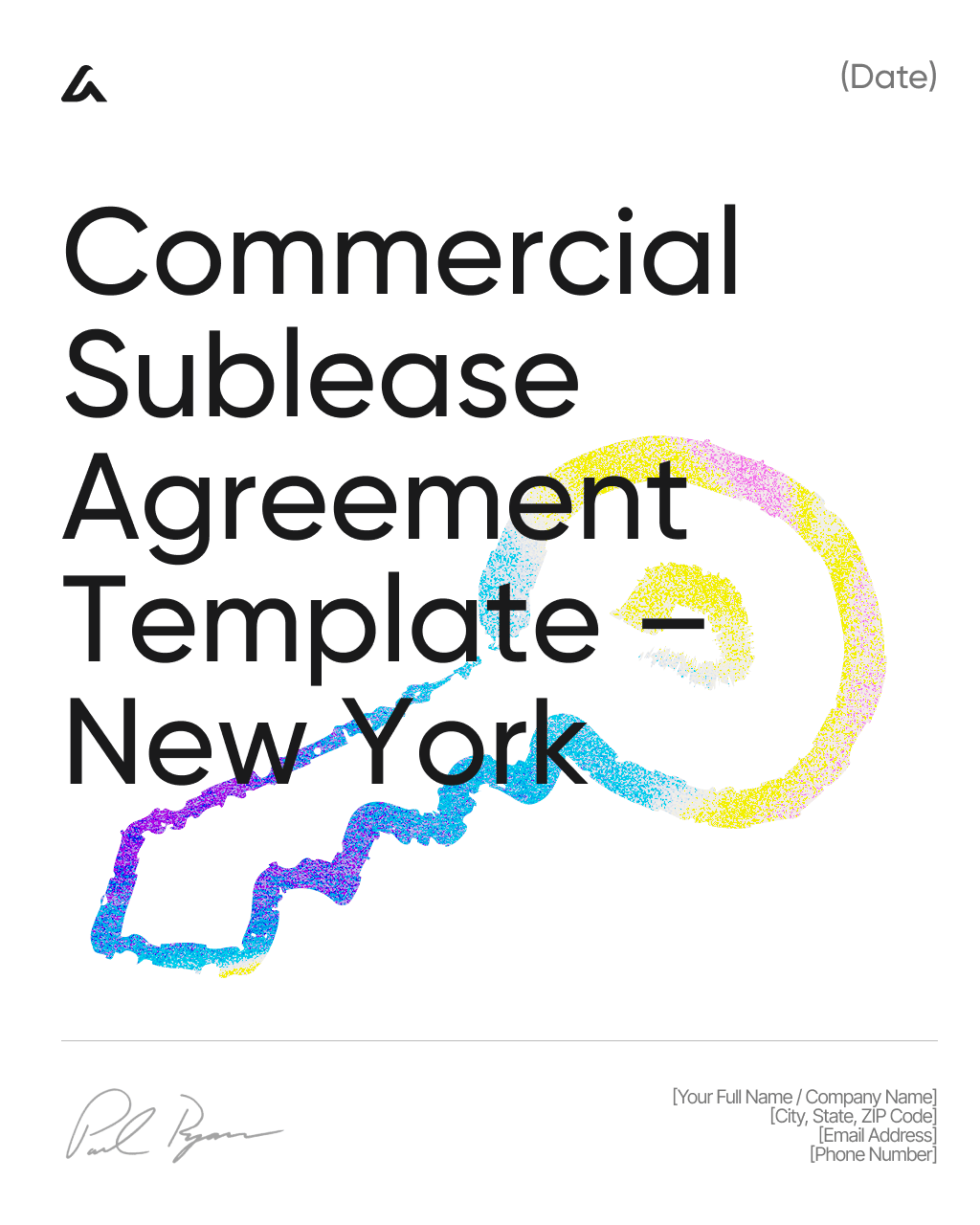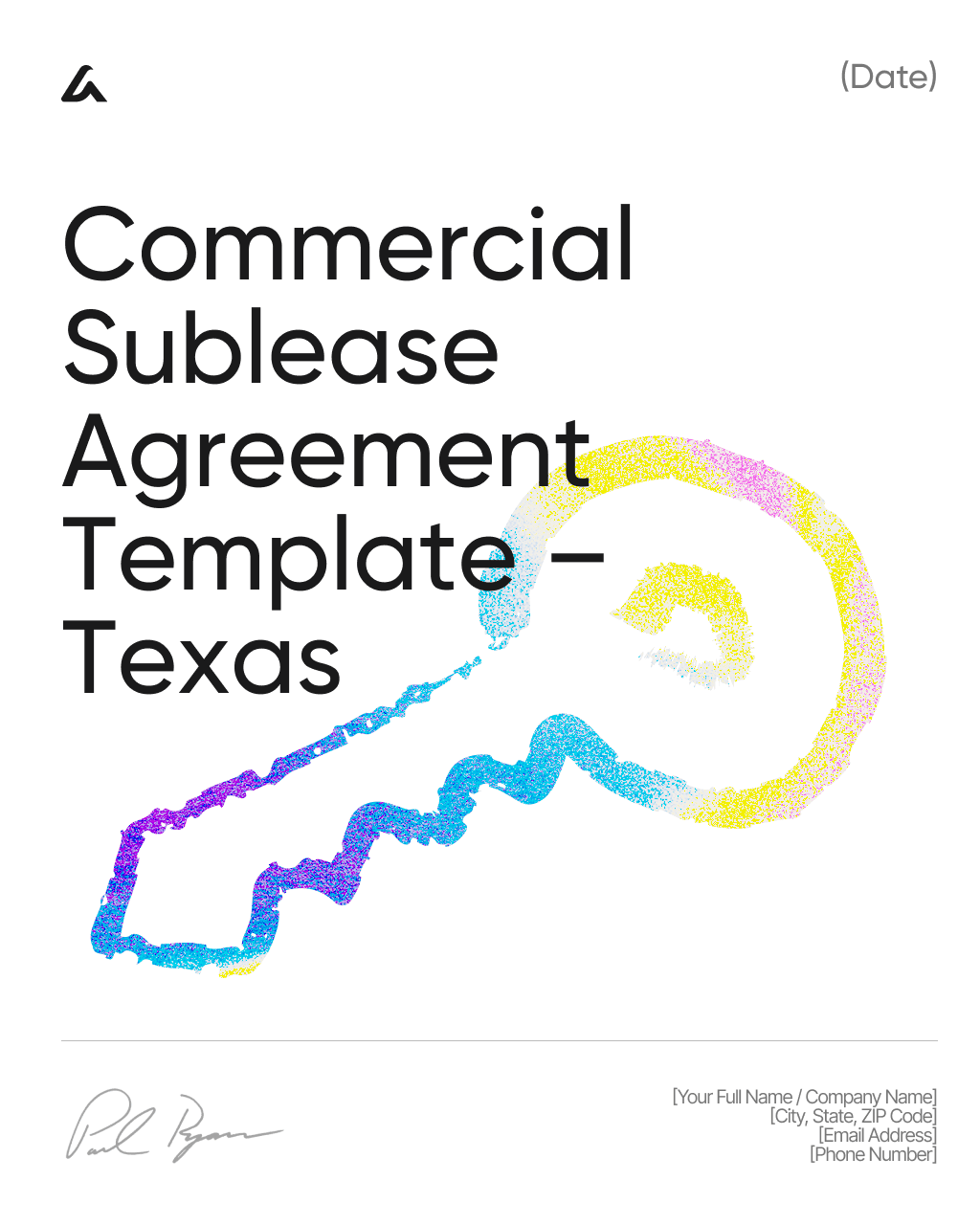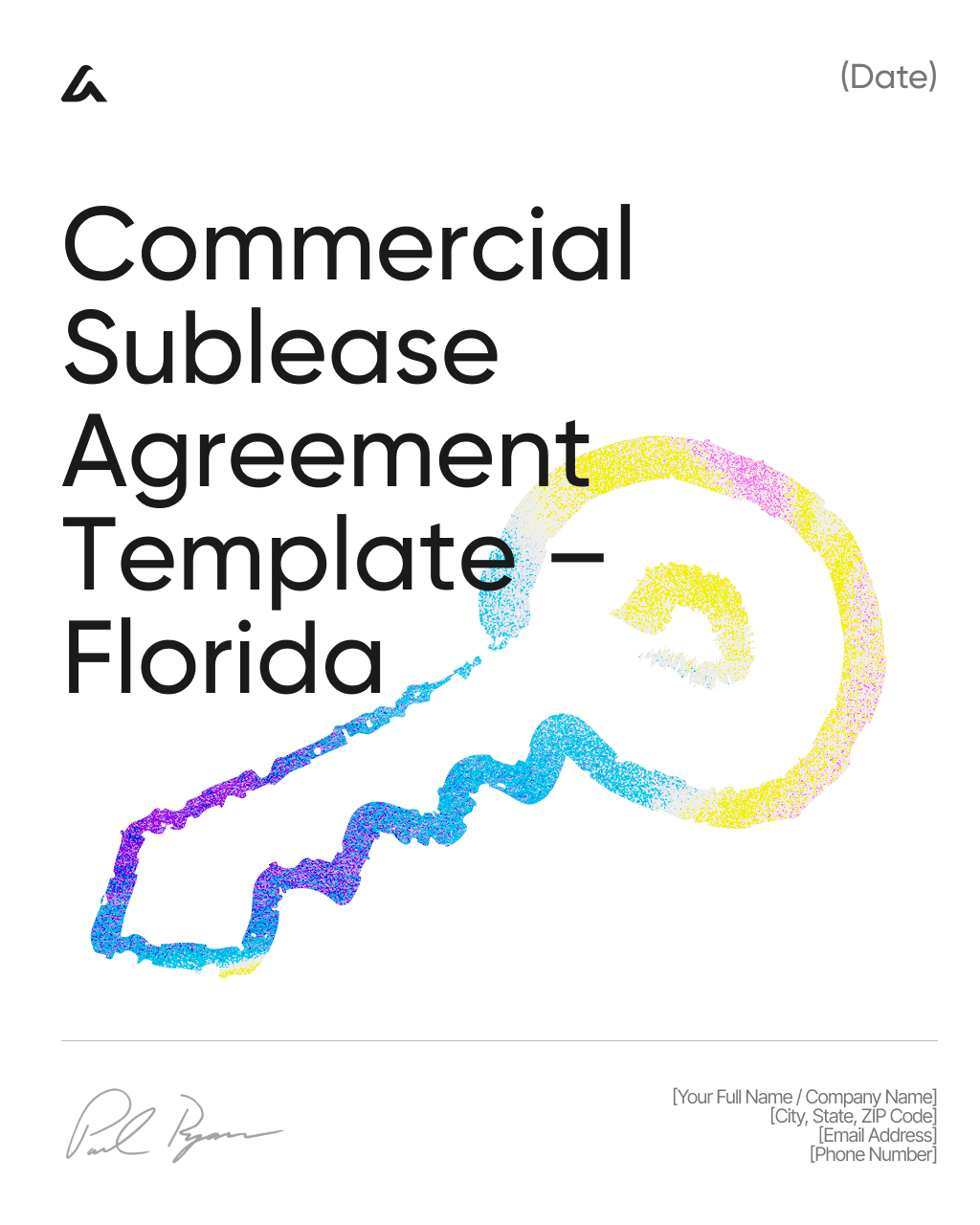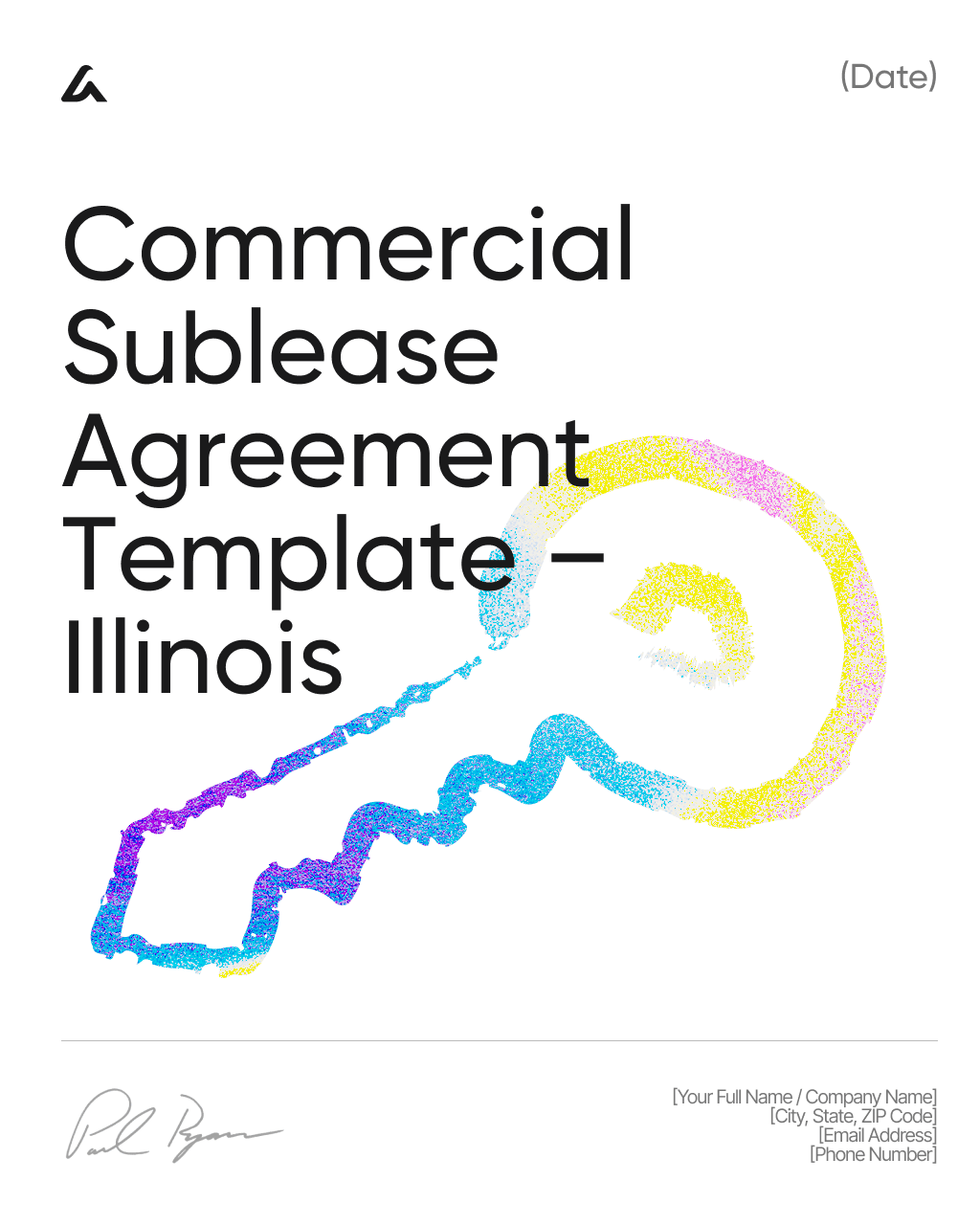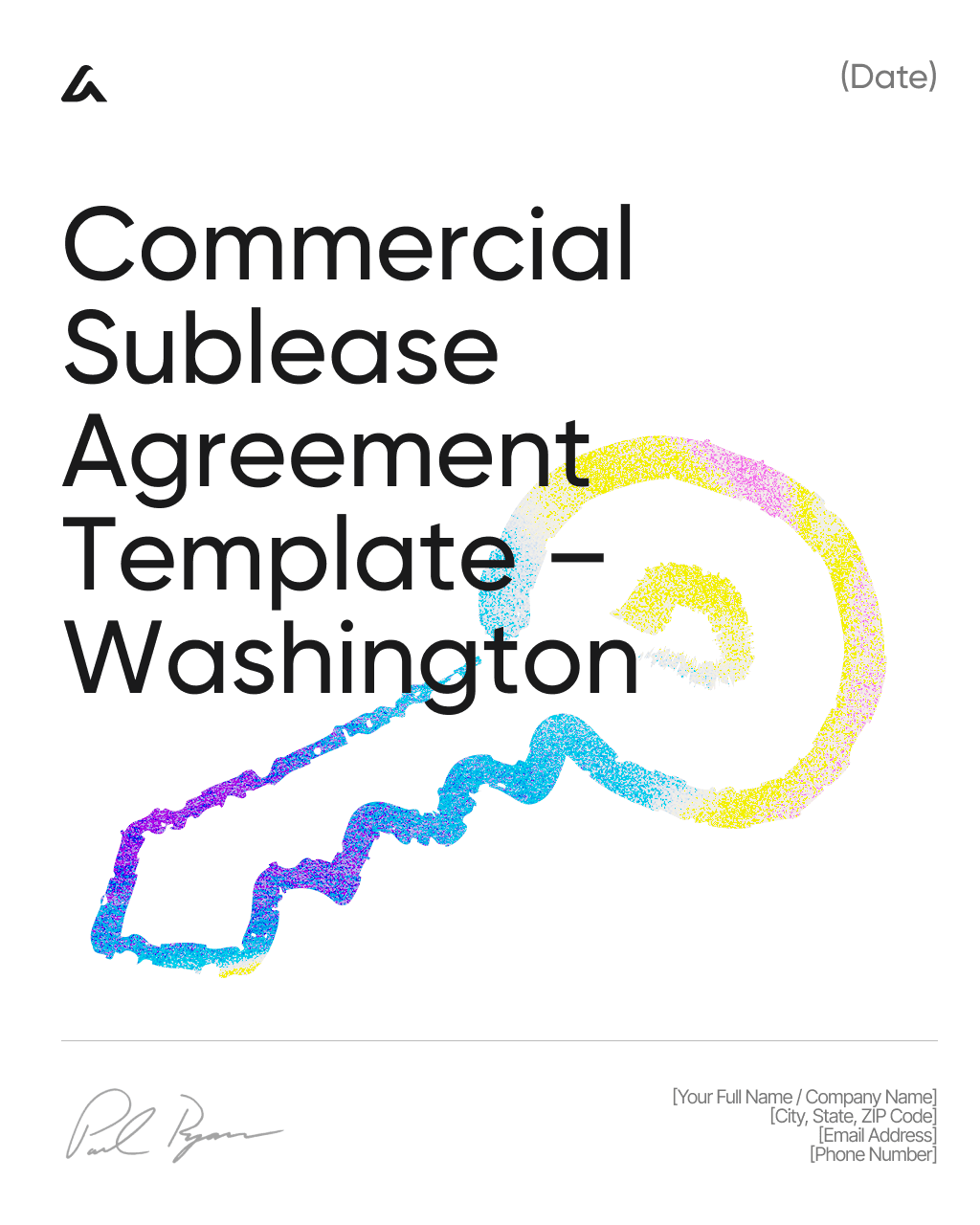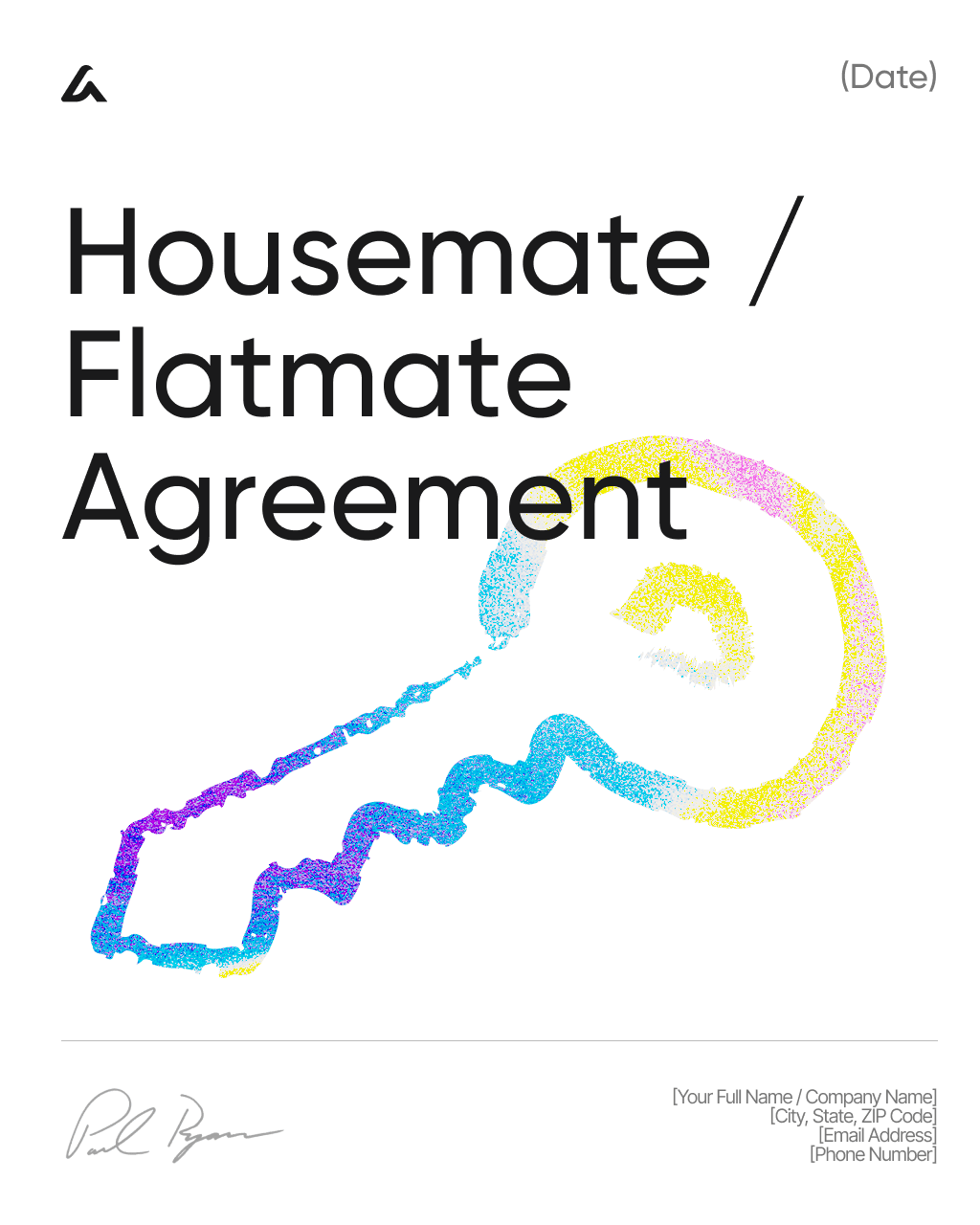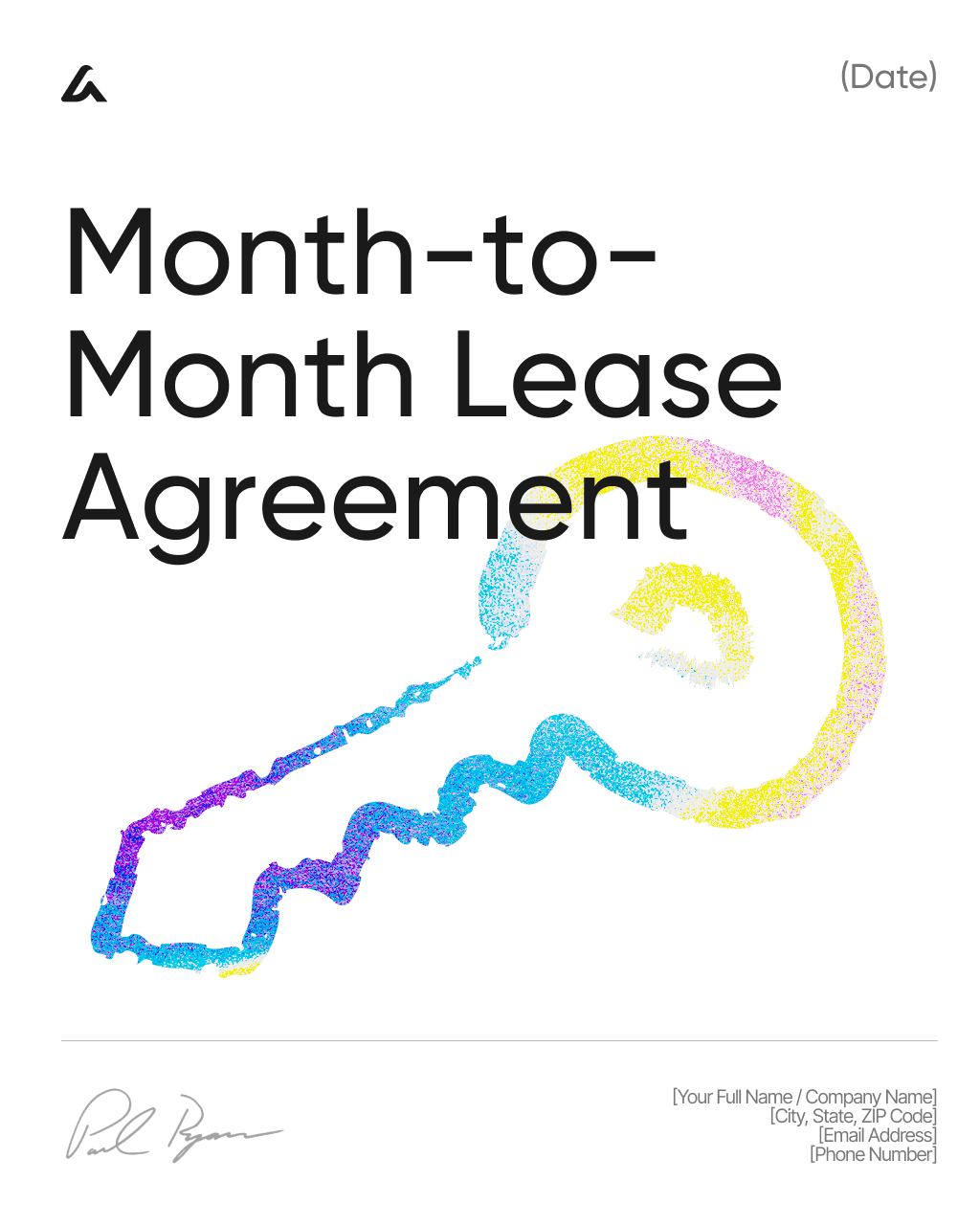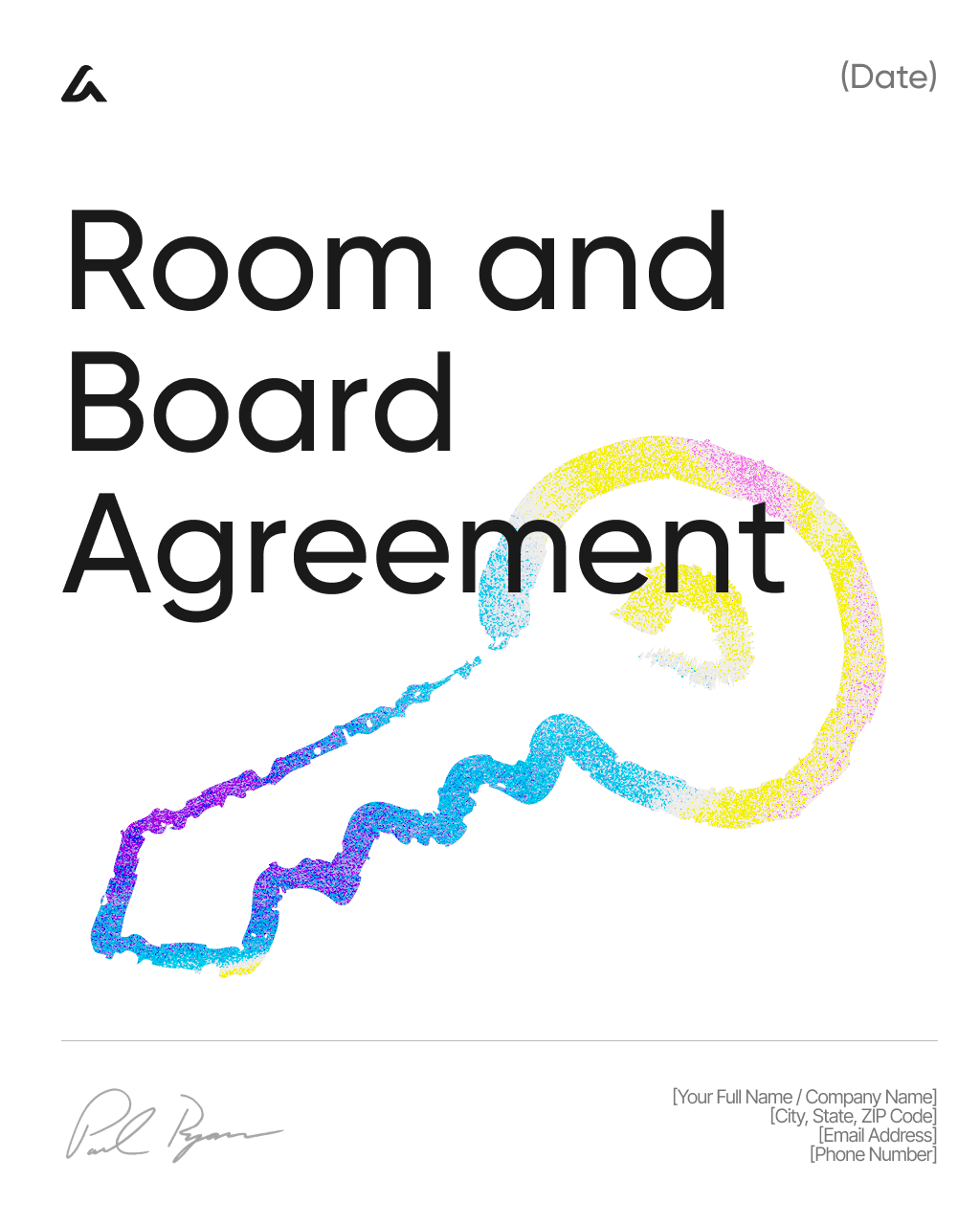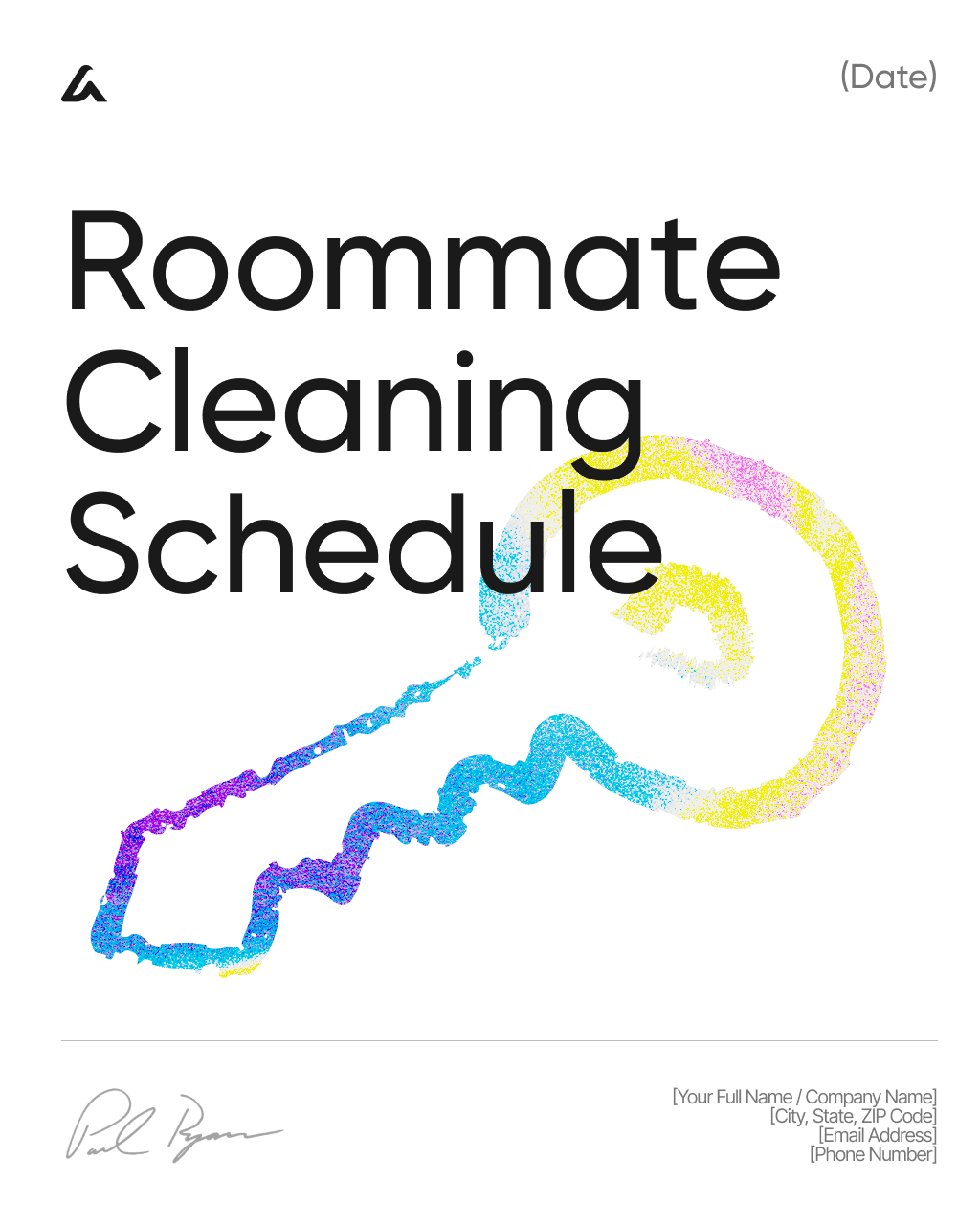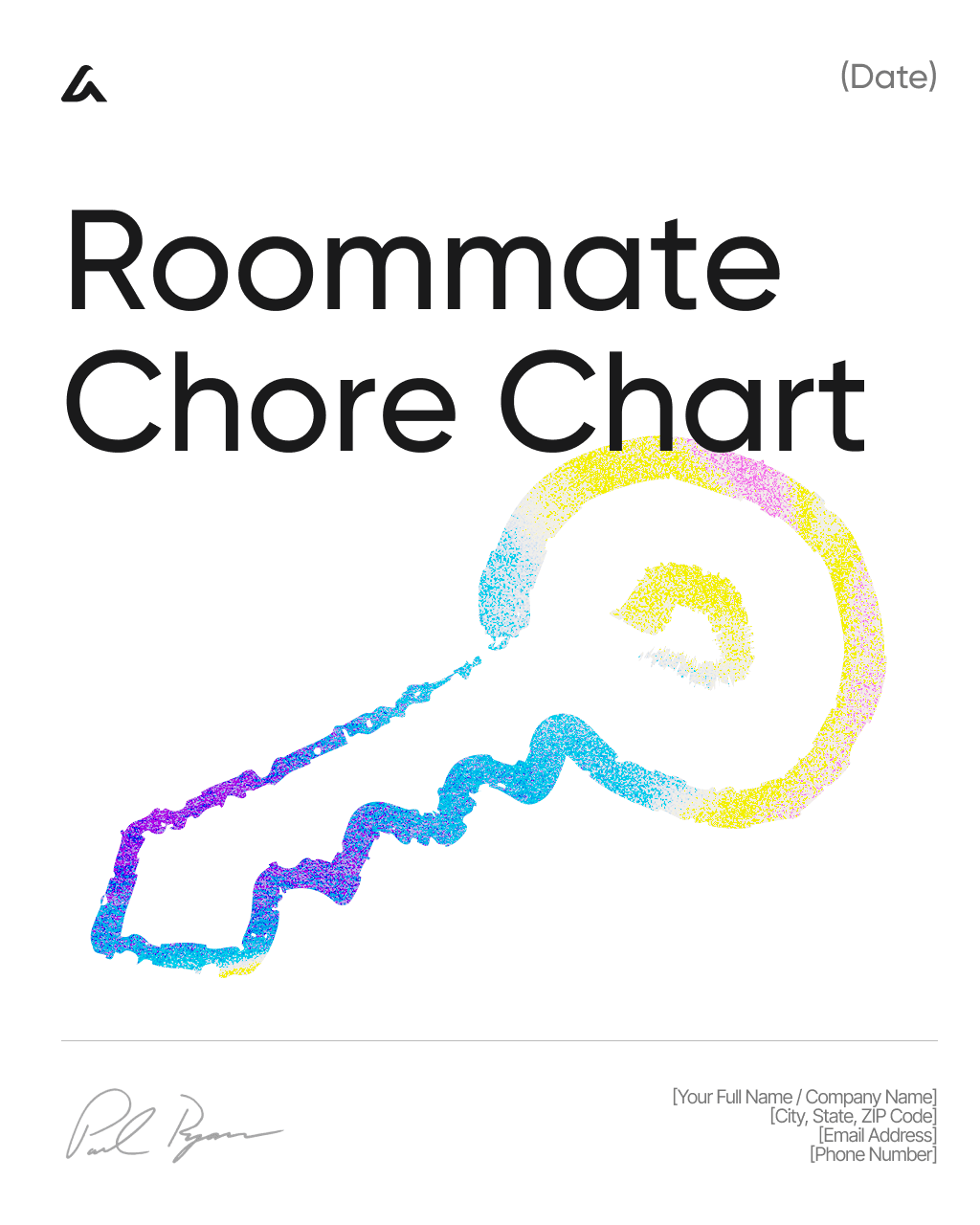Free template
Rent-to-Own Agreement Template: Purchase Terms & Payments Florida
Download template
Rent-to-Own Agreement
This Rent-to-Own Agreement ("Agreement") is entered into on [Effective Date], by and between:
Seller/Landlord: [Full Legal Name], residing at [Address]
and
Buyer/Tenant: [Full Legal Name], residing at [Address]
Property Address: [Full Street Address, City, State, Zip]
1. Agreement Term and Option Path
The Term runs from [Start Date] to [End Date] unless ended earlier under this Agreement. If in good standing, Buyer/Tenant may elect to purchase as outlined below. A mid‑term status review will reconcile credits and confirm compliance.
2. Monthly Rent, Credits, Option Fee
Rent is $[Rent Amount], due each [Day]; $[Credit Amount] per month accrues as a conditional credit toward the price at closing. An option fee of $[Option Fee] is due at execution (☐ applied to price ☐ non‑refundable if no closing). Payment method is [Method]; late fees after [Grace Period] days may apply where lawful.
3. Price and Exercise Mechanics
Purchase price is $[Price] or determined by [Formula/Appraisal]. Notice of Exercise must be delivered by [Notice Deadline]; closing targeted by [Closing Deadline]. Failure to meet deadlines may forfeit rights absent Seller/Landlord default.
4. Inspections and Disclosures
Buyer/Tenant may perform inspections within [Inspection Period] days and later with reasonable notice. Seller/Landlord shall provide available disclosures and access for appraisal. Material findings above $[Threshold] trigger the negotiated remedy: [Repair/Credit/Termination].
5. Care, Repairs, and Alterations
Buyer/Tenant maintains the property in good condition and handles routine upkeep up to $[Minor Cap]. Seller/Landlord is responsible for major systems/structure unless damage arises from misuse/neglect. Alterations require written consent; any permitted improvements become ☐ property of Seller ☐ removable without damage.
6. Risk Allocation; Insurance; Utilities
Seller/Landlord maintains property insurance and taxes unless otherwise agreed; Buyer/Tenant maintains renters liability insurance. Utility allocation and HOA compliance are as follows: [Allocation/Rules]. Storm preparedness and incident reporting protocols may be appended.
7. Financing and Closing
Buyer/Tenant seeks financing; Seller/Landlord provides reasonable cooperation with lender documentation. At closing, credits and option consideration apply to the price and title transfers by [Deed Type]. Closing costs are split as follows: Buyer/Tenant [List]; Seller/Landlord [List].
8. Defaults and Remedies
Late payment, uninsured occupancy, or material breach constitutes default. Upon Buyer/Tenant default, Seller/Landlord may terminate and seek lawful remedies including retention of non‑refundable consideration. Seller/Landlord default enables Buyer/Tenant to pursue specific remedies including return of option amounts and preservation of credits.
9. Early Exit; Assignment
Early termination for documented hardship may be negotiated; assignment/subletting requires prior written consent. On surrender, Buyer/Tenant returns all access devices and settles obligations. Any escrowed funds are reconciled within [Days].
10. Governing Law; Entire Agreement; Notices
This Agreement is governed by [State] law and represents the Parties’ entire agreement. Amendments must be written; notices shall be delivered per Section [Notices]. Severability and non‑waiver remain in effect.
IN WITNESS WHEREOF, the Parties have executed this Agreement as of the date first written above.
Seller/Landlord:
[Printed Name]
Signature: ______________________________
Date: ______________________________
Buyer/Tenant:
[Printed Name]
Signature: ______________________________
Date: ______________________________
Flash deal
Flash deal
Today
Today
No time to fill it up? Generate your custom agreement with AI Lawyer in seconds
What’s Included
Legal Research
Legal Research
Legal Research
Contract Drafting
Contract Drafting
Contract Drafting
Document Review
Document Review
Document Review
Risk Analytics
Risk Analytics
Risk Analytics
Citation Verification
Citation Verification
Citation Verification
Easy-to-understand jargon
Easy-to-understand jargon
Easy-to-understand jargon
Details
Learn more about
Rent-to-Own Agreement Template: Purchase Terms & Payments Florida
Click below for detailed info on the template.
For quick answers, scroll below to see the FAQ.
Click below for detailed info on the template.
For quick answers, scroll below to see the FAQ.
Florida Rent-to-Own Agreement FAQ
What is a Rent-to-Own Agreement?
A Rent-to-Own Agreement (also called a Lease-to-Own or Lease-Option Agreement) is a contract that allows a tenant to rent a property with the option or obligation to buy it later.
Part of each rent payment may go toward the future purchase price, helping the tenant build equity over time.
The agreement outlines key terms such as the purchase price, option fee, rental period, and maintenance responsibilities.
It benefits tenants who want to become homeowners but need time to improve their credit or save for a down payment, while giving landlords a potential sale at a later date.
When to use a Rent-to-Own Agreement?
A Rent-to-Own Agreement should be used when both the landlord and tenant are interested in a future property sale but aren’t ready to complete the purchase immediately. It’s ideal for tenants who plan to buy but need time to save for a down payment, improve credit, or secure financing, and for landlords who want steady rental income while keeping a potential sale on the table.
This type of agreement is also useful when the housing market is uncertain — it locks in a potential purchase price and terms in advance, protecting both parties from future fluctuations.
What should be included in a Rent-to-Own Agreement?
A Rent-to-Own Agreement should clearly define all terms related to both the rental and the future purchase.
It’s essential to include all details that protect both the tenant-buyer and the landlord-seller.
A complete Rent-to-Own Agreement typically includes:
Property details: Full address and description of the property.
Rental terms: Monthly rent amount, payment dates, and lease duration.
Option to purchase: Whether the tenant has the right or obligation to buy the property.
Purchase price: Either a fixed amount or a formula for determining it later.
Option fee or deposit: Any upfront payment that applies toward the purchase price.
Rent credit: Portion of rent payments that will be credited toward the purchase.
Maintenance responsibilities: Which party is responsible for repairs and upkeep.
Default and termination clauses: What happens if either party fails to meet the terms.
Signatures: Both parties must sign to make the agreement legally binding.
Having all these elements in writing helps prevent misunderstandings and ensures that both parties understand their financial and legal commitments.
Can a Rent-to-Own Agreement be changed after signing?
Yes, a Rent-to-Own Agreement can be changed after signing, but only if both parties agree in writing.
Any modification — such as adjusting the purchase price, rent amount, or option period — must be documented through a formal amendment signed by both the tenant-buyer and the landlord-seller.
Verbal agreements or informal changes have no legal effect and can create disputes later.To avoid confusion, both parties should keep copies of all signed amendments along with the original agreement.
Can a tenant sublease a property under a Rent-to-Own Agreement?
In most cases, a tenant cannot sublease a property under a Rent-to-Own Agreement unless the landlord gives written permission. Because the agreement involves both a lease and an option to buy, subleasing could complicate ownership rights and violate the terms of the contract.
If the tenant subleases without consent, the landlord may treat it as a breach of contract, which could void the option to purchase and even lead to eviction. Tenants who want to sublease should review their agreement carefully and request written approval from the landlord before making any arrangements. It’s always best to get clear consent in writing to avoid losing the right to purchase the property.
Similar templates
Other templates from
Lease Agreement
Money back guarantee
Free trial
Cancel anytime
AI Lawyer protects
your rights and wallet
Money back guarantee
Free trial
Cancel anytime
AI Lawyer protects
your rights and wallet
Money back guarantee
Free trial
Cancel anytime
AI Lawyer protects
your rights and wallet
Money back guarantee
Free trial
Cancel anytime





















































































































